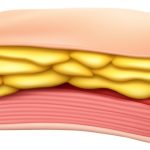Let’s face it, figuring out the cost of allergy testing can be confusing. Prices vary, and it’s hard to know what you’re paying for. This guide simplifies everything, explaining the different types of allergy tests, their costs, and how to choose the best one. We’ll discuss why some tests are inexpensive while others are costly and offer ways to save money. Plus, we’ll provide tips on managing your allergies for the long term, helping you feel better and breathe easier. Whether you’re dealing with mild symptoms or severe reactions, this guide empowers you to make informed decisions about your testing and allergy care.
Allergy Test Cost: Your 2024 Price Guide
Determining the cost of allergy testing can feel like navigating a maze. Prices differ significantly, and knowing what influences the final bill is crucial for making smart choices. This guide breaks down the costs and assists you in making informed decisions. What key factors determine the expense of allergy testing?
Understanding Allergy Test Costs: More Than Just One Price
The cost of allergy testing isn’t a single, fixed number. It depends on several factors, making it important to understand these influences before scheduling an appointment. Consider it like assembling a price using building blocks. Do insurance plans affect your allergy test bill?
Allergy Tests: Different Types, Different Prices
Several types of allergy tests are available, each with its own price. Let’s examine the main options:
-
Skin Prick Tests: These are usually the fastest and most affordable initial screening method. Expect to pay between $60 and $300, depending on the number of allergens tested. This is a quick way to check which substances might be causing your allergies. It’s similar to a general screening.
-
Intradermal Tests: If a skin prick test suggests an allergy, your doctor might recommend this more sensitive test. This test explores deeper than the skin prick test. Because of its enhanced precision, it’s generally more expensive, ranging from $100 to over $500.
-
Patch Tests: These are specialized for contact dermatitis (allergic reactions to substances that touch your skin). The costs are similar to skin prick tests, varying based on the number of substances tested.
-
Blood Tests: Blood tests provide a broader perspective and are very detailed. This comprehensive test examines a wide range of potential allergens. They’re more expensive, typically costing between $200 and $1,000 or more, due to the detailed laboratory work involved. Consider it like a comprehensive health examination. Approximately 25% of adults have allergies, according to the Asthma and Allergy Foundation of America.
-
At-Home Allergy Tests: These tests offer convenience, but their accuracy can be questionable. They are less expensive, frequently under $50, but the results might not be as reliable as those from a healthcare professional. Use these cautiously, and remember that additional testing may be needed to confirm the results.
What Drives Up the Price?
Several factors contribute to the final price. These include:
-
The Number of Allergens Tested: Testing for more allergens will naturally increase the overall cost. Each allergen added requires more tests or reagents.
-
Your Health Insurance: This factor plays a significant role. Some insurance plans provide extensive coverage for allergy testing, while others offer minimal coverage, resulting in substantial out-of-pocket expenses. Review your policy details carefully.
-
Where You Get Tested: Allergy testing at a large hospital will likely be more expensive than at a smaller clinic or a doctor’s office. It’s beneficial to research and contact several providers to find the best prices.
-
Additional Services: Additional tests or consultations with specialists after your initial testing will also increase the total expense. A nasal endoscopy to check for sinus and nasal structural issues might cost extra, but it can help identify the best path for treatment, especially if your allergies involve sinus problems.
How Accurate Are These Tests, Anyway?
You’ll also want to consider the accuracy of different types of tests. Accuracy varies. Skin prick tests are quick, but they might miss some allergens. Blood tests are more thorough but can produce false positives (indicating an allergy when you don’t have one) or false negatives (failing to detect a real allergy). Your allergist will interpret the results and discuss their implications. Always discuss potential follow-up steps with your doctor. The goal is not only test results but also an accurate diagnosis and effective treatment. How important is it to consult an allergist for accurate interpretation?
Navigating Your Insurance Coverage
Prior to scheduling a test, review your health insurance policy to understand your coverage. This is crucial to avoid unexpected expenses. Some insurers require pre-authorization prior to covering the cost. Is pre-authorization commonly required by health insurers for allergy testing?
Allergy Test Options: A Quick Comparison
| Test Type | Typical Cost Range | Advantages | Disadvantages |
|---|---|---|---|
| Skin Prick Test | $60 – $300 | Fast, relatively inexpensive, readily available, can test multiple allergens at once | May miss some allergens; slight risk of reaction; not suitable for individuals with severe skin conditions or those who cannot stop taking certain medications |
| Intradermal Test | $100 – $500+ | More sensitive than skin prick tests, useful if skin prick test results are inconclusive | More expensive; higher risk of reaction |
| Patch Test | $100 – $500+ | Specific for contact dermatitis, identifies substances causing skin reactions on contact | More time-consuming, requires wearing a patch for 48 hours and a follow-up visit to assess results |
| Blood Test | $200 – $1000+ | Comprehensive allergen testing, suitable for individuals who cannot undergo skin tests due to medications or skin conditions, can test for a wide range of allergens | Expensive, might not be necessary in all cases, results take longer to receive |
| At-Home Allergy Test | Under $50 | Convenient, affordable, allows sample collection from home | Potentially inaccurate; lacks professional input; may require additional testing for confirmation |
Making the Right Choice for You
Selecting the correct allergy test involves carefully balancing cost, accuracy, and your specific needs. Consulting with your doctor is essential. They can help you choose the best option based on your symptoms, medical history, and overall health. Remember that an accurate diagnosis is crucial for effective allergy management. Don’t hesitate to ask questions and ensure you understand everything completely before moving forward. This is an investment in your health.
How to Choose Between Allergy Skin and Blood Tests Based on Cost and Accuracy
Key Takeaways:
- Skin prick tests are generally faster and less expensive, making them ideal for identifying common allergies and when quick results are needed.
- Blood tests are more suitable for individuals on medication, with skin conditions, or requiring a more comprehensive allergen panel.
- Both tests have a notable false-positive rate; therefore, results should be interpreted by a qualified healthcare professional.
Understanding Your Allergy Testing Options: Skin Prick vs. Blood
Determining what’s causing your allergies can be challenging. Two primary tests can help identify the triggers: skin prick tests and blood tests. So, how to choose between allergy skin and blood tests based on cost and accuracy? Let’s examine it in detail. What are the main differences between skin prick and blood allergy tests?
Skin Prick Test: The Quick and (Often) Affordable Option
This test is quick and generally less expensive, with costs ranging from $60 to $300. A tiny amount of allergen is pricked onto your skin, usually on the forearm or back. A small, raised bump indicates a reaction. Results? You often get them within minutes, typically within 15-20 minutes. Sounds simple, right? It is!
Pros:
- Speed: Results are typically available in 15-20 minutes.
- Cost: Generally more affordable than blood tests.
Cons:
- Not for everyone: It’s unreliable if you’re taking antihistamines or have skin conditions like eczema.
- Accuracy: Like blood tests, it has a considerable false-positive rate (around 50-60%).
Blood Test: A Deeper Dive
Blood tests, typically costing between $200 and $1,000, offer a more comprehensive assessment, particularly for individuals who cannot undergo a skin prick test. They measure IgE antibodies (Immunoglobulin E antibodies), which are indicators of an allergic response to various substances. A blood sample is sent to a lab for analysis, and results are usually available in 3 to 7 days.
Pros:
- Suitable for everyone: Ideal if you take medication that interferes with skin prick tests or have sensitive skin conditions.
- Detailed information: Can identify a wider range of allergens and provide detailed information about the levels of antibodies to each allergen.
Cons:
- Cost: Blood tests generally cost more than skin prick tests.
- Time: Results take longer, usually 3 to 7 days.
- Why Am I Always Thinking About Food? Your Body and Brain Explain - February 2, 2026
- Healthy Eating Is About Quality, Not Just Calories - February 1, 2026
- Healthy Living Products to Elevate Your Wellness Routine - January 31, 2026










